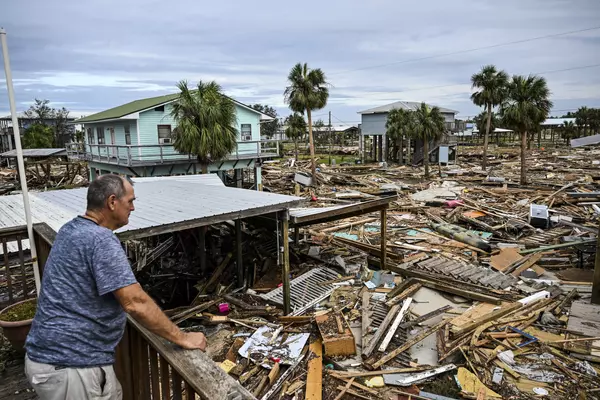The head of the US disaster relief agency has described the Hurricane Helene, which has now killed nearly 100 people, a “true multi-state event” that caused “significant infrastructure damage” and had been made worse because of global heating.
According to state and local officials in South Carolina, Florida, Georgia, North Carolina and Virginia, the storm killed at least 91 people and officials feared more bodies would be discovered.
“This is going to be a really complicated recovery in each of the five states” of Florida, Georgia, North Carolina, South Carolina and Tennessee, the Fema administrator, Deanne Criswell, said.
She noted that a 15ft storm surge hit Florida’s Taylor county, where Helene came ashore as a category 4 hurricane late Thursday with winds of 140mph (225km/h), and pointed out that areas of western North Carolina, where search and rescue operations are continuing, recorded 29in (74cm) of rain when the storm stalled over the region.
“This is historic flooding up in North Carolina,” Criswell told the CBS show Face the Nation on Sunday. “I don’t know that anybody could be fully prepared for the amount of flooding and landslides they are having right now.”
Kamala Harris said the Joe Biden administration had approved emergency declarations for Alabama, Florida, Georgia, North Carolina, South Carolina and Tennessee, “making resources and funding available to maximize our coordinated response efforts at the local, state, and federal levels”.
Read also: Scientists criticise UN agency over failure to withdraw livestock emissions report
The White House said on Sunday that Biden intended to travel this week to communities affected by Hurricane Helene as soon as it would not disrupt the emergency response.
Biden spoke with Georgia Governor Brian Kemp and North Carolina Governor Roy Cooper on Sunday evening to get updates on response and recovery efforts, and to promise continued support to affected communities.
A North Carolina county that includes the mountain city of Asheville reported 30 people killed due to the storm. As many as 1,000 people remain unaccounted for in Buncombe county in the Appalachian mountains, where the hurricane caused catastrophic flooding and mudslides in the Asheville region, cutting off most communication and making the roads impassable.
Supplies were being airlifted to the region around the isolated city. Buncombe county’s manager, Avril Pinder, pledged that she would have food and water into Ashville – known for its arts, culture and natural attractions – by Monday.
More than 150 search and rescue operations were under way in the state. North Carolina governor Roy Cooper’s office said on Sunday that “people are desperate for help”. “Even as the rain and winds have subsided, the challenge for people there increases.”
Storyy was adapted from the Guardian.
